|
I’m always skeptical when I hear others describe instances of suffering as “blessings in disguise.” Can you imagine breaking your arm and having a friend say, “That’s a blessing in disguise!” – while you’re still sitting in the ER? Sure, they might be right eventually; but in that moment you would be in too much pain for their words to be helpful. You might even consider deleting that friend’s phone number. The events of the last year have made it even harder to recognize such hidden blessings. Amidst universal confusion, we are thirsting for straightforwardness. Maybe that’s why today’s Gospel reading is hitting me differently. In this passage, we receive a clear and radiant report of Jesus’ person and ministry: “For God so loved the world that he gave his only Son, so that everyone who believes in him might not perish but might have eternal life.” In these words, we find Jesus directly offering Himself and extending His invitation to each one of us: believe and trust me. He is unmasked, undisguised. Now, will Jesus’ straightforwardness give me the courage this Lent to step out from behind my own disguises? Focus (Social Justice): Today’s Gospel suggests that darkness is part of the human experience. When I reflect on the world, the United States, and even my city of Washington, D.C., there is surely darkness preventing us from achieving equality and equity for all. This darkness is within me too, in the moments when I doubt change is possible. God acknowledges this darkness by sending his light and messengers into the world. Their examples help guide us and strengthen us. Is there a particular messenger who inspires your own prayers and actions this Lent? Prayer: God, thank you for this life and journey. Please help me along the way. When the world seems dark, please help me remember the hope and humor you’ve placed in my heart. When my own darkness attacks me from within, please help me to reach out beyond myself to others. You have placed good friends in my life – help me to remember they are there for me! Please help me to be a friend and helper in return. Amen. Service Suggestion: This Lent, reach out and call or Zoom each week with someone in your life who you haven’t seen or heard from in a while. You may help to reduce the isolation that person may be feeling during this lengthy pandemic. This reflection is from the 2021 Lenten Reflection Guide. To access the complete guide, please click here.
0 Comments
As Americans gather around the dinner table for the annual Thanksgiving meal, families have the opportunity to recall and be thankful for the blessings in their lives. The true focus of this national occasion is not simply to marvel at the bounty of food upon the table, but to acknowledge the labors and gifts which directly and indirectly impacted one’s quality of life. As Christians, we know that all thanksgiving is oriented towards God as families join hands and bow their heads in prayers of gratitude. Attitudes of gratitude don’t need to be restricted to the fourth Thursday of November, but can be prevalent in our hearts, minds, and daily lives throughout each year.
True expressions of thanksgiving are rooted in the acknowledgement that nothing in this life should be taken for granted. The blessings of life ultimately come from God’s innate goodness, and Scripture details many occasions of gratitude to God that are often accompanied by offering sacrifices or praise. We read in the psalms, “I will praise God’s name in song and glorify him with thanksgiving” (Psalm 69) and “Let us come before him with thanksgiving and extol him with music and song.” (Psalm 95) Thessalonians reminds us to “give thanks in all circumstances” and Ephesians similarly admonishes us to “always giving thanks to God the Father for everything.” Thanksgiving is a fundamental component of a life of faith. Furthermore, the sacrifices God is interested in include the sacrifice of our pride in favor of humility, the sacrifice of personal desires and wants in favor of trust in His will, and the sacrifice of sinful behaviors in favor of living the life of holiness God has desired for us. As Catholics, we are infinitely grateful for the ultimate sacrifice of Christ upon the cross and the means God Himself has instituted for our embrace of the gift of salvation. As such, the highest form of prayer on earth is participation in the Holy Mass and the direct reception of Christ’s body and blood in the Holy Eucharist (which itself means “thanksgiving”). Thanksgiving disposes our hearts to more fully receive Christ and be transformed by His love. By imitating Jesus, who broke bread and gave thanks to His Heavenly Father prior to his Passion, we are given the strength to similarly give thanks in all circumstances and grow more Christ-like as a result. Of the many pieces of spiritual advice I’ve been given by priests, the reminder to grow in gratitude for what God has given me is a constant opportunity to realize my utter dependency on His providence. In gratitude lies true joy. This Thanksgiving, I invite you to celebrate an attitude of gratitude that overflows into the new year and the years to come. On August 15th, the Solemnity of the Assumption of our Blessed Virgin Mother into heaven, we celebrate Mary’s completion of life on Earth and her existence in eternity with Jesus. We can reflect on her sinless life as she was chosen by God to be the mother of Christ and also on her example of motherhood, grace, and virtue.
On this Marian feast, I feel a special closeness to the Blessed Mother because I recently found out that, I too, am preparing to be a mother. I ask for Mary’s intercession for a healthy pregnancy often and I hope to love more each day like she did. From her moment of saying, “Yes!” to God at a young age, to her worried searching for Jesus in the Temple, and even to her urging of her son at the Wedding at Cana to begin his ministry, Mary is a mother we can relate to. Her faith in God kept her focus on Jesus and his growth, safety, and well-being on Earth in order to ensure that he would fulfill his life’s mission to save us all from sin. Mary is the mother we can all imitate. Mary’s life was probably not an easy one. She faced speculation and ridicule from those in her community when she gave her Fiat and said yes to God’s plan. She lived at a time when a pregnant and unwed woman could be outcast from everyone she knew, but she persisted and trusted. Enduring these hardships could create doubt in someone’s mind and dissuade a person, but Mary stayed true to her grace-filled faith. I like to imagine that her cousin Elizabeth was a kindred spirit for Mary, someone who could support her and was also full of grace and faith. Joseph too, said “Yes!” to God, took Mary as his wife, and raised Jesus with strength and grace. He was a supporter for Mary and loved her, fully knowing his purpose as a protector and provider for the family. Throughout her life, we know that Mary reflected and pondered on the many blessings she had received. Scripture tells us she held them in her heart. Let us appreciate those special moments in our lives, too! Recently, I’ve been trying to take a moment each day to “hold things in my heart” and reflect on the goodness of God. Sometimes it’s when I see the sunshine for the first time that day. Other times it’s at the end of the day in a more reflective manner, and still other times it is in a crucial or stressful moment as I search for the good in what’s going on around me. There are many times throughout our days in which we could pause, reflect on a blessing, and have a grateful moment of prayer. On this Assumption, I challenge you to imitate Mary and learn from her grateful heart in this way. Below is a prayer from the Liturgy of the Hours, a method of prayer that seminarians, priests, religious sisters, deacons, and lay people participate in all over the world. This particular prayer is prayed on the feast of the Assumption. As we celebrate the Assumption of Mary, let us look to her example of faith and devotion and let us ask her to continue to bring us closer to Christ and help us to live for his glory. Almighty God, You gave a humble Virgin the privilege of being mother of your Son, and crowned her with the glory of heaven. May the prayers of the Virgin Mary bring us to the salvation of Christ and raise us up to eternal life. We ask this through our Lord Jesus Christ your Son who lives and reigns with you and the Holy Spirit, one God, forever and ever. Amen. Throughout my studies at The Catholic University of America, I had the opportunity to witness and participate in the sacred traditions and rites of various religious orders I would never have encountered back at home. A great blessing of my place of study was the constant flux of various clergy, seminarians, and religious throughout campus who were undertaking a degree program or simply passing through campus in their respective ministries. God bless the Franciscans, Little Sisters of the Poor, Marians, Sisters of Life, Sisters Servants of Mary Immaculate, Pallottines, and the Missionaries of Charity, to name a few, who joyfully lived out their vocations—inspiring observers to get to know them and their spiritualties and facilitating an encounter with the Lord.
In God’s providence, I frequently found myself at the Dominican House of Studies at the far side of campus and was able to join the community of brothers and priests in their night prayers and certain liturgical celebrations which were open to the public. Personally, I found the house to be a commanding presence and a bit daunting on the inside: the intellectual prowess of the Order of Preachers and its faithful carrying out of its mandate to preach conveyed a certain spiritual seriousness which drew me in all the more. How striking were the resonating, unified, and almost haunting tones of the sacred chants of prayer, together with the corresponding gestures and postures and the dimmed lights! And yet, in wonderful moments of levity, the very same Dominicans could be found performing excellent bluegrass music as “The Hillbilly Thomists”! Before Dominic’s mother conceived him, she dreamt a dog leapt from her womb and set the world on fire. Dominic went on to become a priest and ultimately founded the Order of Preachers—the Dominicans. The Dominicans rose to the forefront of the intellectual life of the Middle Ages as they announced the Gospel, combatted heresy, gave quality spiritual and scholastic instructions, and contributed unmatched gifts to schools of theology and philosophy. They are lovingly nicknamed “the hounds of the Lord.” The Order has raised up many saints and conferees who ministered to every corner of the world, advocating for the rights of Native Americans, standardizing the liturgy of the Mass, compiling the Church’s canonical laws, composing timeless sacred hymns, caring for the poor, advancing the correlation of faith and science, and promoting the holy Rosary. Western civilization owes a debt of gratitude for the contributions of Dominicans such as Saints Thomas Aquinas, Albert the Great, Pope Pius V, Catherine of Siena, Rose of Lima, Louis de Montfort, and Martin de Porres. Participating from time to time in the life of that religious community gave me a lovely insight into the incredible mysticism of the Order and of the Church Universal. Such a powerful instrument of personal and theological devotion is not the closely held property of one religious order or vocation, but a gift available to anyone who seeks to enhance their personal spirituality with deeply historic and touching methods. This involves realizing the soul as something more sacred than just consciousness; the soul is able to love which helps to better relate to God, who is Love incarnate, emotionally and ecstatically rather than merely intellectually. And you don’t need the philosophical and theological background of a Dominican to similarly enhance your own prayer life! You can begin by quietly placing yourself in the holy presence of God and focusing on the love He offers and the ways He is being loved (or not) in return. Going deeper, it could be beneficial to read the thoughts and reflections of various Dominican saints who embraced a similar spirituality. How good God is to have called upon Saint Dominic hundreds of years ago to begin such an incredible religious order committed to promoting Truth and the mandate to praise, to bless, and to preach (In fact, that is one motto of the Order!).The work of the Dominicans is especially needed today in our society of moral relativism and secularism. Let us pray that many more answer God’s ongoing call for holy religious and priestly vocations. And may we, as lay people, continuously support the Church which offers so many varied spiritual treasures for our sanctification. A little more than 100 miles south of Berlin, Germany, just north of the Ore Mountain Range, lies the small town of Lomnitz. In the early 20th century when millions of Europeans journeyed to the United States in search of a better life, a small group of immigrants from Lomnitz was processed through Ellis Island. To those immigrants, the United States federal government assigned the last name “Lomnitzer.” Just as those from New York are called New Yorkers, so too were those from Lomnitz to be called Lomnitzers. Although I am not German by blood, there is a special place in my heart for the small town of Lomnitz and the group of Lomnitzers that settled in America. When my paternal grandfather was born, he was left by his biological mother at the doorstep of a convent. The loving nuns found a home for the baby and he was adopted as an infant. He then became Charles Lomnitzer, a beloved member of the Lomnitzer family. It is through the generosity of the Lomnitzers that I, Tyler Lomnitzer, three generations removed, have a wonderful life and continue to bear the family name with honor and gratitude. The Lomnitzers recognized the dignity of each and every human person. Charles’s biological mother was unable to care for him, but the Lomnitzers nevertheless saw Charles as a gift and blessing to their family. Just as America provided a beacon of hope and the promise of a better life to the Lomnitzers, so too did the Lomnitzers provide a beacon of hope to my grandfather. I found the story of my family to be a powerful moment of prayer last Thursday, January 18 during the annual Vigil Mass for Life. The Mass takes place at the Basilica of the National Shrine of the Immaculate Conception in Washington, D.C. the night before the annual March for Life. Packed into the basilica were thousands of Catholics from all over the country who had gathered to pray for the legal protection of the unborn and for an increase in the recognition of the sanctity of life from conception until natural death. We gathered under the leadership of the bishops—Cardinal Dolan from the Archdiocese of New York was the celebrant and homilist—to come together as a Church in fellowship and prayer. It was the nuns’ prayer and commitment to life that found a home for my grandfather and paved the way for my life in this world; it will be the prayer and commitment to life of all those present at the basilica that will lead to (God-willing) thousands of beautiful lives to come. It was also the prayer and commitment to life of the Lomnitzers that allowed them to find room in their home for a little boy who needed parents. The Lomnitzer lineage is my lineage, not by blood, but by love. Please join me in prayer for all those who need parents, or lack other necessary means of survival. Question for Reflection: What are some ways that you can touch the life of someone you encounter so that the other might recognize their own life’s gift and sanctity? Hallelujah! Praise God in his holy sanctuary; give praise in the mighty dome of heaven. Give praise for his mighty deeds, praise him for his great majesty. Give praise with blasts upon the horn, praise him with harp and lyre. Give praise with tambourines and dance, praise him with strings and pipes. Give praise with crashing cymbals, praise him with sounding cymbals. Let everything that has breath give praise to the LORD! Hallelujah! - Psalm 150 Back in high school, my primary extracurricular activities were band and drama club. I’ll always remember how our band teacher, Mr. Crocken, would begin every concert by reciting Psalm 150. Before any announcements or accolades, any thanks or congratulations, he would acknowledge the one from whom all our gifts and talents flow. Before all else, he gave a gentle but profound reminder of the importance of thanking God for our blessings at all times, especially through music. As one would expect in a Catholic school, we began every meeting, whether a class, club, or team practice, with prayer. Our after-school drama club rehearsals were no different. Concluding prayer with the school’s traditional litany to our three patrons, the drama club also always added Saints Genesius and Cecilia, the patrons of actors and musicians. I’d always wondered why Cecilia was patroness of musicians and, since her feast day is today, I finally investigated. Saint Cecilia, one of the most venerated of the Roman martyrs, is most well known as patroness of musicians. Despite having consecrated her maidenhood to God, she married a man called Valerian. During their nuptial Mass, she sang to God in her heart, asking for an angel to protect her virginity. When Valerian asked his bride for proof that she was protected by an angel, Cecilia sent him to the Appian Way to be baptized. There, he saw the angel and quickly became an evangelist, converting many to the faith before being martyred some time later. Cecilia’s martyrdom soon followed, ministering to the poor even on her deathbed. Since her canonization, Cecilia has been very much defined by that story of her singing on her wedding day. There’s even a musical conservatory in Rome, one of the oldest in the world, named after her. It’s always struck me how music is consistently referred to, particularly in Church circles, as a means by which to glorify and praise God. When I think of the moments when my soul has been most moved, they frequently involve music. Pieces like Handel’s Messiah, Mozart’s Requiem, and especially Schubert’s Ave Maria, move me even to tears more often than not. Why? They are beautiful works of art, to be sure, but the reasons they were written are far deeper. The composers used their craft to elevate the listener closer to God in a way that no other media seems able to match. Pieces of music like those just mentioned seem to take root in people’s hearts in a very profound way. That’s why they’ve been integrated into everyday life over the ages. From the Gregorian Chant used in the Mass, to folk songs sung at table or around the fire, even to modern popular music, the common thread is that humanity is united by that universal language that speaks directly to the heart. In my own life, Handel’s Messiah is very dear to me. We sang it in choir when I was in college, I listen to it every year while trimming the Christmas Tree and “decking the halls”, and I join a group of friends every December 23rd for a sing-along performance at the Kennedy Center in Washington, DC. Something about the piece moves me in a way I can’t really explain. But that’s the beauty of music! St. Cecilia gave thanks to the Lord in her heart and with her voice. This Thanksgiving, as we reflect on the blessings God has bestowed upon us this year, let us follow the example of St. Cecilia and the Psalms and join everything that has breath and praise the Lord. St. Cecilia, pray for us! Today in the United States, families and friends gather together as they have for centuries around a shared meal to give thanks for their many blessings. A holiday rich with traditions, Thanksgiving brings about memories of eating at the “kid’s table,” cheering on family members in the annual Turkey Trot, late night dashes to the shopping mall and, of course, devouring enough food to last for days. For me, each of my cherished memories of this holiday share a common theme - the joy and love of time spent with my family. As we celebrate this holiday that brings our families together, I can’t help but recall the message of Pope Francis during his recent Apostolic Visit to the United States for the occasion of the World Meeting of Families. During the Festival of Families on Saturday evening, September 26th, Pope Francis sat and attentively listened as a handful of families came forward and shared the stories that had brought them to that stage on the Benjamin Franklin Parkway in Center City, Philadelphia. These families shared their own testimonies, speaking of the great joys in their lives, the suffering and losses they have experienced, the challenges, and the love that has held them together. I was incredibly moved to hear the stories of these families. Clearly, the Holy Father was as well, as he departed from his prepared remarks in his response. In speaking to the throngs of families present, he said, “The family has a divine identity card…God gave the family an identity card, so that families could be places in our world where his truth, love and beauty could continue to take root and grow.” This above all must be the primary mission of our families in today’s world. Inevitably, in our pursuit of this goal, each of us will encounter difficulties and setbacks that at times seem insurmountable. Pope Francis acknowledged this, saying, “In families, there are difficulties, but those difficulties are resolved by love. Hatred doesn’t resolve any difficulty. Divided hearts do not resolve difficulties. Only love is capable of resolving difficulty. Love is a celebration, love is joy, love is perseverance.” This Thanksgiving–in between the helpings of mashed potatoes, cheering on our favored football team and scouting out the biggest doorbuster deals–I hope this message from Pope Francis is one we keep close to mind. Our time spent with family, wherever we might be, is an opportunity to be a witness to God’s love. While we might have our disagreements and we might have our trials, with love we can persevere. And with love we can know an everlasting joy. On behalf of the entire Catholic Apostolate Center team, I wish you all a very blessed Thanksgiving! Each year it seems that just as soon as we’ve concluded the joyous season of Christmas, we find ourselves putting away the carols and nativity scene just to replace them with our Friday fish sandwiches and talk of our Lenten sacrifices. At first glance it may seem that the coming of Lent each year calls for us to “put away” our joy. After all it’s a season of penance to bring ourselves closer to Christ through his suffering – not exactly the definition of joy. But is it possible to still have joy during this season of prayer and reflection?
Recently I read Fr. James Martin’s book, Between Heaven and Mirth, in which he discusses how joy and our spiritual life don’t have to be mutually exclusive. Particularly he proposes ways in which we can incorporate joy into our prayer life, suggestions that we could put into practice this Lent. First and foremost we must be willing to bring our joy to the Lord through prayer. Just as we might call up a good friend with exciting news, so also should we cultivate that same desire to share our daily joys with the Lord. Although we may be in Lent, our daily lives aren’t devoid of joyous occasions. What made you laugh today? What was your “high point” of the day? When I was growing up my family would sit around the dinner table sharing our “high point,” or our favorite thing that happened to us that day. Forcing myself to remember something good was always easier some days than others but it reminded me there was always something for which I could give thanks. Additionally, beyond just recalling joyous moments, we can use our prayer to think back to the people, experiences and memories that perhaps we may take for granted. For myself, I can far too easily forget to recognize the blessings of being able to attend a university and pursue a degree, as well as the tremendous influence of my parents. Surely my years here in college and the lessons my parents instilled in me have also given rise to joy in my life; it’s just not something I always remember on a daily basis. Even more importantly, in remembering these people and experiences we may take for granted we develop a greater sense of gratitude and realize that our joy doesn’t exist in a vacuum, but because of these blessings that God has given each of us. In this we see that joy is much more than just sheer happiness. Rather, it is a reflection of our prayer life and relationship with God. As the French philosopher Leon Bloy once said, “Joy is the most infallible sign of God’s presence.” The secular world often views joy as synonymous with simple emotional happiness, yet, according to Fr. Martin, the Christian definition of joy is happiness in God and revolves around our relationship with Him. This is precisely what allows us to have joy in the midst of suffering, and yes, even Lent. Although at its outset Lent may not seem an occasion for joy, it is an occasion to deepen our prayer life and our internal joy - our happiness in God. In this prayer we can develop a greater sense of gratitude for both the blessings in our lives and, especially this Lent, an appreciation for Christ’s Paschal mystery, all of which can lead to a richer relationship with our Lord. St. Paul sums it up best in his Letter to the Thessalonians: “Rejoice always, pray without ceasing, give thanks in all circumstances; for this is the will of God for you in Jesus Christ” (1 Thessalonians 5:16-18). David Burkey is the Communications Coordinator for the Catholic Apostolate Center Be sure to check out the Catholic Apostolate Center's Lenten Resource Page! Editor's Note: This post was originally published on February 26, 2013 |
Details
Archives
July 2024
Categories
All
|
About |
Media |
© COPYRIGHT 2024 | ALL RIGHTS RESERVED

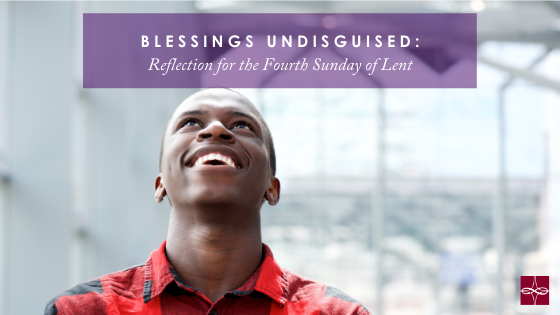



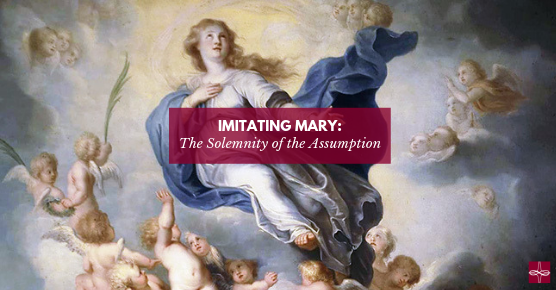

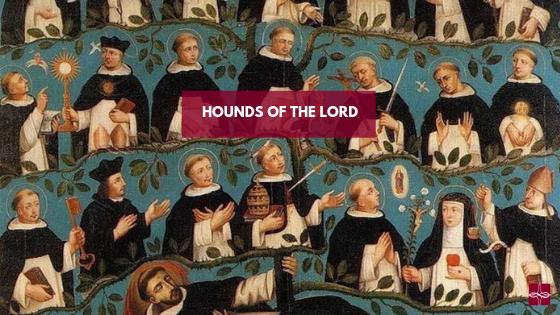

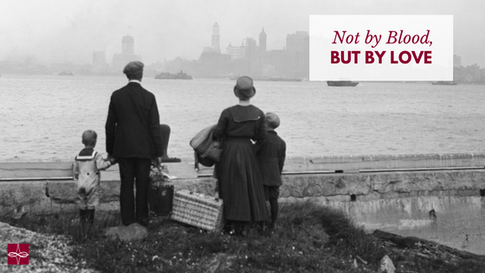

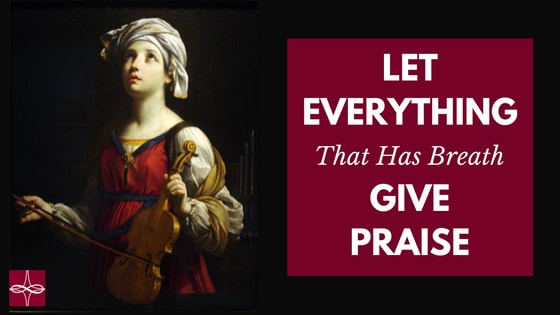

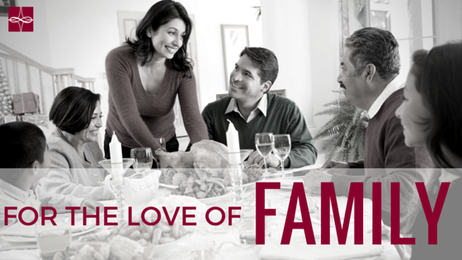

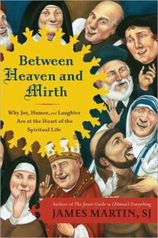
 RSS Feed
RSS Feed